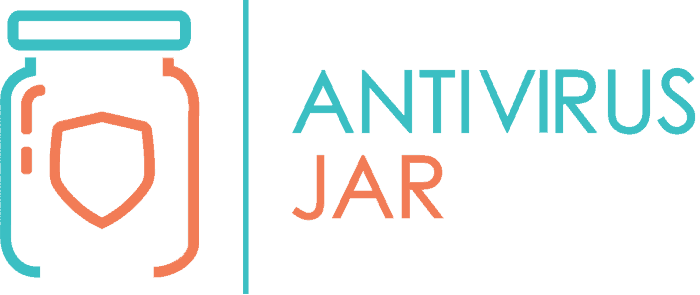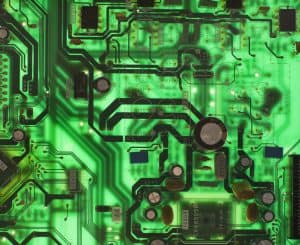
Let’s face it. We love Free stuff! Getting something without paying makes us happy and empowered. Free can be used to trick us into downloading apps or files that are infected. And one of the most common types of malware you get from free stuff is Trojan. If you have an antivirus or think to buy one, most likely, you asked yourself this.
Can antivirus detect the trojan virus type? Yes, it can. All antivirus solutions have the knowledge, and they know how a trojan works. It identifies it’s signature and behavior and prevents the damage that Trojans can make. Even a new type of malware can be detected relatively quickly.
No type of malware should ever exist on your pc, and if we think about it, they shouldn’t exist at all. But because they are a reality, we have to stay a few steps before the hackers and be prepared. Our most important weapon in the fight with cybercriminals is our knowledge. Let’s dive in and learn more about the damage trojan does and how we can prevent and protect ourselves against it.
How antivirus detects Trojan?
Antiviruses don’t have a unique tool to detect Trojans. Like any other malware or virus, Trojans are doing something they should not. It can try to get your confidential information or mess with your pc. The Problem with Trojan is it disguises itself as a legit program that you want to use.
There are a few ways that your antivirus can detect a Trojan:
- Signature-based detection. Every program has a signature. A signature is nothing more than a binary pattern. When an antivirus scans a file you downloaded, it looks at its signature and compares it against an extensive database of virus signatures. If it is a known malicious signature, it will warn you immediately.
- Heuristic-based detection. Analyzes behavior in and patterns of code to see if your file or program is infected. Any Suspicious Code is run in a runtime virtual environment to test it more. This method can find new viruses that are not in your antivirus database.
- Behavioral-based detection. Your antivirus is continually looking at your pc. If one of your programs behaves weirdly and is doing harmful things, your antivirus will see that and let you know.
- Sandbox detection – If your antivirus doesn’t know for sure if a program or file has a virus and it suspects something, it will run it in a sandbox. Similar to behavioral-based detection, Sandbox detection will let your file run in a virtual machine and see how it behaves.
Your antivirus does more than those four things and can identify Trojan using a lot more types of detection. Those are just the most important ones because any malware has a signature and similar behaviors.
Can antivirus remove Trojans?
If your antivirus knows how to detect a trojan, you bet that it knows how to remove it too! Antivirus is not only going to detect threats. It will also protect you from threats. You can read more about how an antivirus removes viruses here.
How do I know if I have a Trojan virus?
We think of ourselves as busy people. We run left and right from dawn to twilight, and we hardly have time for something else. Sometimes we forget or don’t have time to wait 20 minutes for a system update. We ignored the antivirus updates, and all software on our computer is so far behind that you decided to sit down and update. But something is not right, and you might think you have a virus. Here are some signs of getting you wondering if you have a trojan on your pc:
Your Pc Is slow
This is the most obvious sign that you have a virus. You are starting to wait for a new program to launch. Even when you right-click to create a new folder, the popup has trouble to show up. Browsing through your files is not snappy anymore. This should raise concerns.
Weird popups
For me, nothing is more annoying than a popup. This is one of the reasons I am using a Mac or a Linux machine more often than a windows one. But still, most of Windows’s popups are legit and are there to inform you about software and system updates, news, and other useful things. But when an ad pops up is not good. Not an advertisement from a free software you have installed that tells you to update to their premium version. An ad that is about something you never saw or access.
You cannot access some settings or files
A Trojan or any virus will try to protect itself from being removed. If you can’t access a folder that you never see before or turn on some security settings that are off now, most likely, you were infected.
A different homepage on your browser
Viruses can change your computer settings and software settings. In the hacker’s quest to make money, it will change your browser settings too. They need you to access that website so they can make you buy a product or infect you more with different types of malware
Unknown programs are running when you turn on your computer
Some apps are starting when your pc is turned on. It can be some essential applications so your system can run. It can be something that you set up to start when you turn on your pc. But if you notice any other software that starts without your permission and is a suspicious one, chances are you were infected.
A lot of spam in your email
Some viruses can get your personal information. A Trojan can do that too. If you see your email flooded with tons of emails with weird titles and from unknown senders, you guessed it!
Problems with your laptop’s battery
Your computer is newer, or you didn’t use it a lot, and you notice that your battery is draining really fast. Batteries can go bad after a period, and this should not necessarily mean you have a virus. You bought a new battery, and your battery keeps draining. This can mean that you have a virus
A lot of crashes
You are trying to copy something from one folder to another, and you explorer crashes. You try it again, and the same happens. Your browser is crashing, and now you are starting to get the blue screen quite often. When this happens, you first have to think if your system is just old and it is on his last legs. But if it isn’t you could have a virus;
Can you get Trojan on your phone?
If you are not a software engineer or you don’t have to use a pc for work, you are using your phone more. It can replace almost anything you can do with a pc. You are exposing yourself to online threats.
The good news is that you cannot get a virus on your phone. The way that they are built is pretty hard to break in. Also, for you to install something on your phone, you have to download it from the app store or google play store. It is almost impossible for a hacker to upload a malicious app. But not impossible. Sooner or later, it will be discovered and removed from the store.
The problem comes when you install apps outside of the dedicated app store. You can be infected if you download and install something from a website. Remember, trojans look like a legit app and try to convince you that they are right for you! This is one of the ways you can your phone hacked.
The other way is to root or jailbreak your device. This means you have super admin access to your phone, and you bypass the built-in security features. This is not that common, and you have to know how to do that. If, for any reason, you have to root your phone, don’t do this to your primary device. Use a secondary phone for this where no personal information is stored.
How can Trojans be prevented?
Prevention is the best method. You can make sure you will not be infected. A new trojan will not be discovered until it runs, and if it runs, it can steal your personal information before your antivirus detects it. Here are some things that I do:
- Use an antivirus. I like having an extra set of eyes on my internet browsing. This can prevent me from doing something stupid that I will regret later. Sure an antivirus is not going to protect you from anything but is an essential tool to have
- Keep your system up to date. Even with an antivirus in place, you have to keep your Operating system and software up to date. Windows or Mac Os are continually trying to make their OS more secure. They release new updates from now and then, and you should take the time to update it. Also, other software that you have on your pc will let you know of any updates they have. You should update those too.
- Use strong passwords for all of your accounts. If you can’t remembering or create strong passwords, use a password manager. This type of software can create strong passwords and store them for you. If you don’t want to use one, create long passwords, even if it is simple. A 10 character password is pretty strong, and it is hard to break. But still, use alphanumeric passwords with special characters and upper and lower case letters.
- Back up your Files. If, for some reason, you are infected and cannot get your hand on your data or your data is infected, having a back-up of your files will help you! You can format your entire pc to destroy the virus, and you don’t have to worry about losing your data.
- Don’t download and install software from suspicious websites. Trojans are good software on the surface. Inside they contain malicious code that can harm you! So stay safe and download and install software only from the publisher’s website.
- Watch out for clickbaity emails. Email is an excellent form of communication but also can be used to trick you in downloading infected files. If you don’t know the sender, do yourself a favor and delete the email!
- Use your common sense. If something seems suspicious or you don’t trust it, stay away. The more you read and know about viruses and online threats, the more you will know how to avoid it!
If you made it this far, it means you are a step ahead of a hacker. You learned how an antivirus detects Trojan malware and how to prevent Trojans from getting in your pc. Congratulations! You are a step ahead in the fight with cybercriminals!






